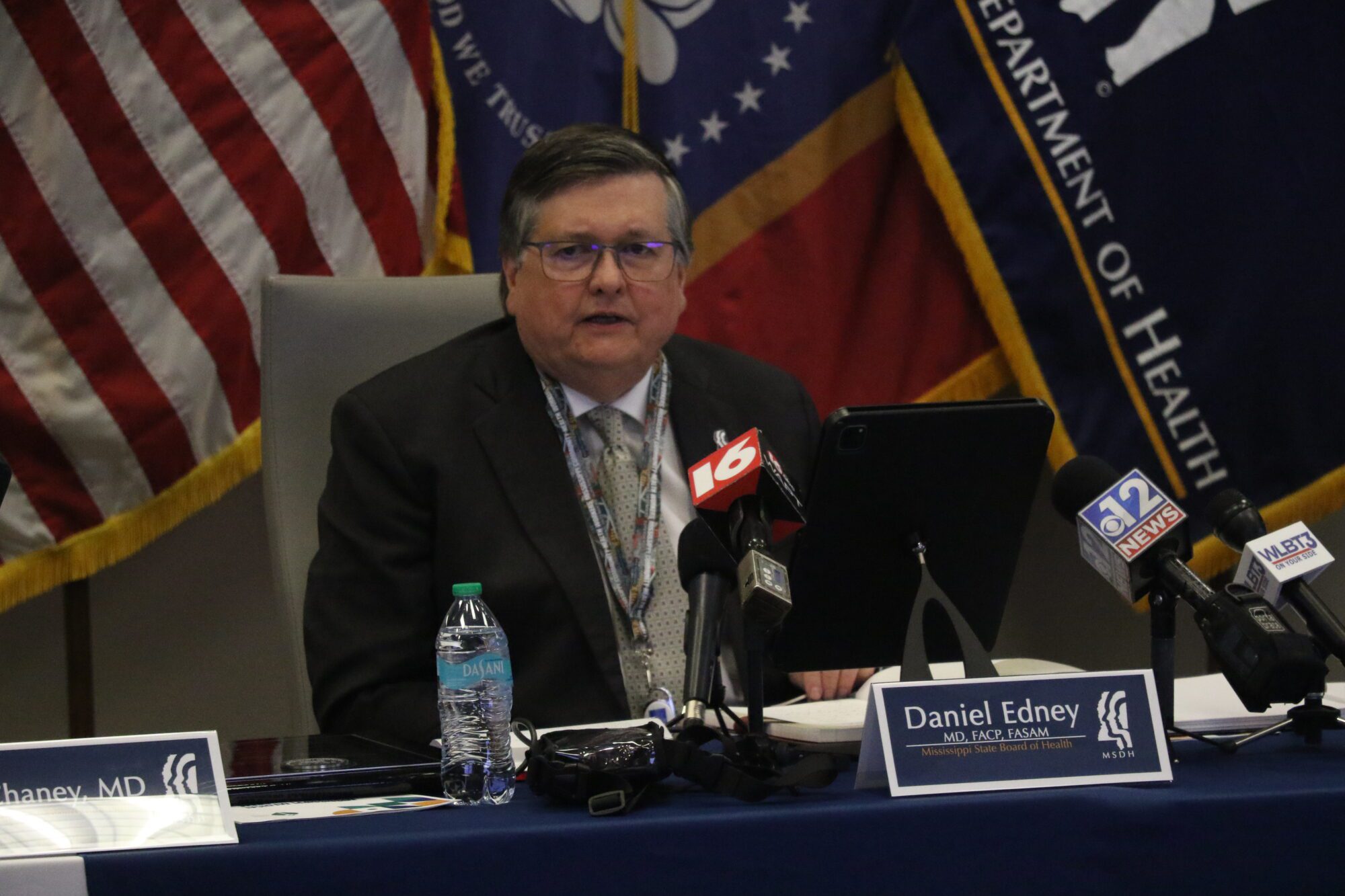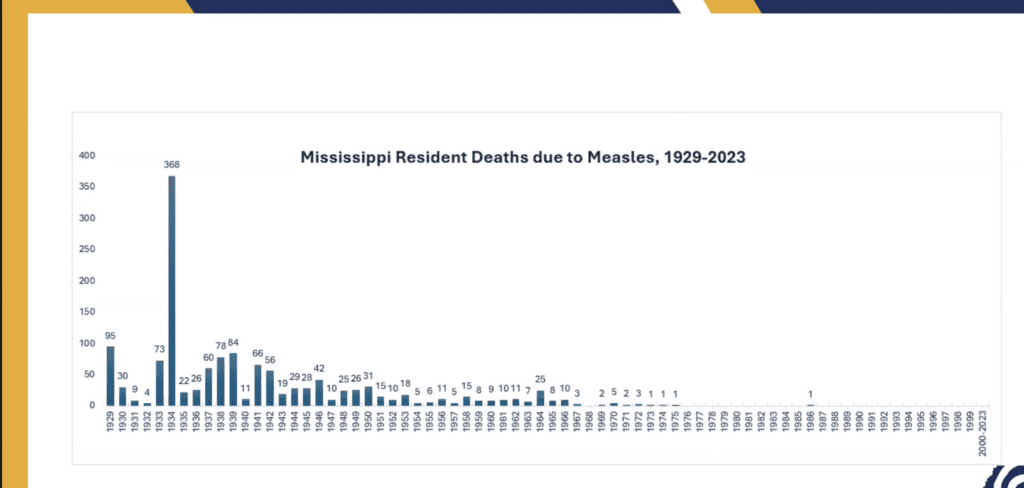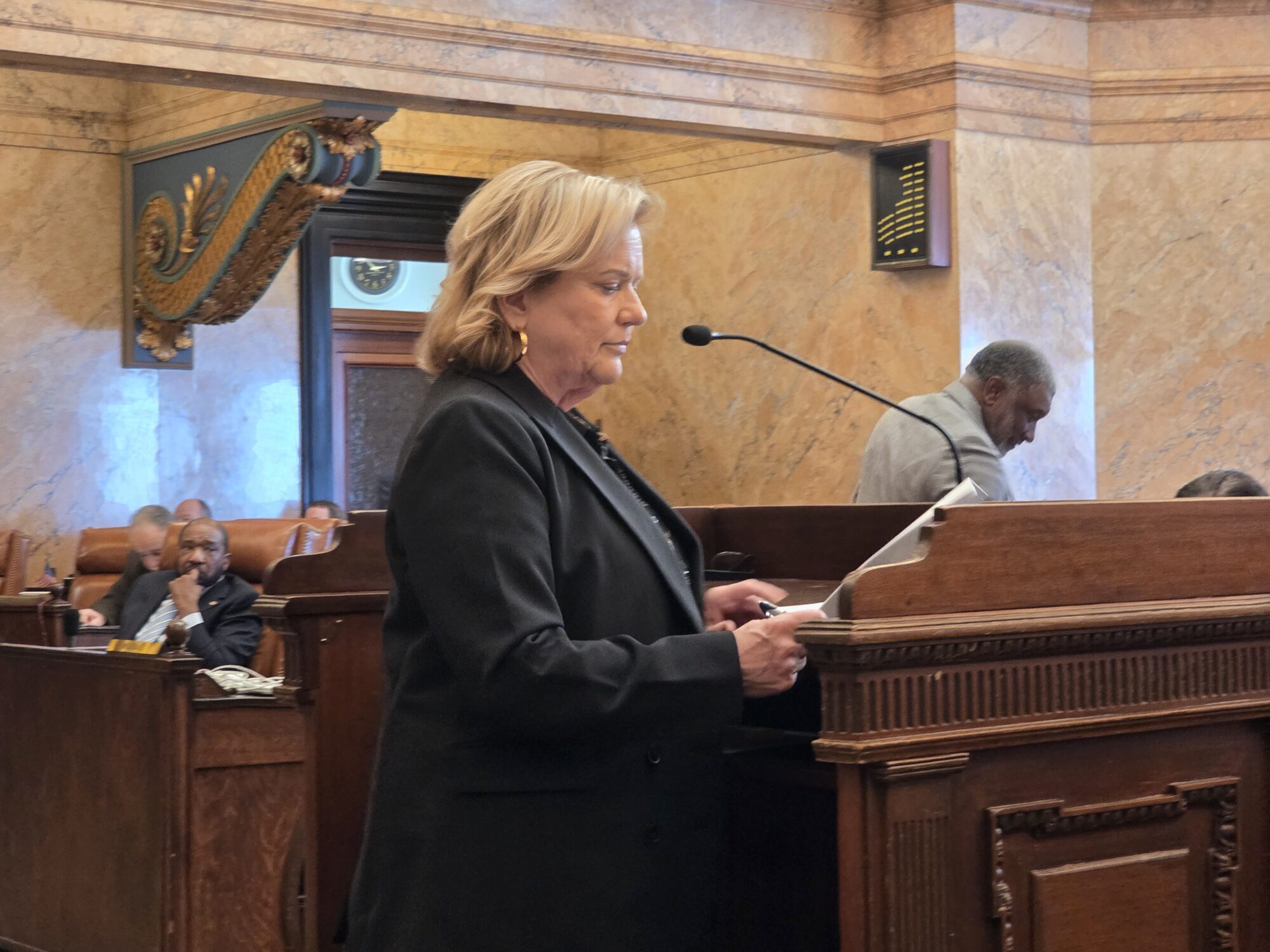State Board of Health receives update on measles, pertussis cases

State Health Officer Dr. Daniel Edney addresses the Mississippi State Department of Health during Wednesday's meeting - January 2025. (Photo by Jeremy Pittari | Magnolia Tribune)
- Vaccination was cited as the best method to protect children from the contagious diseases.
Measles in the state of Mississippi are currently nonexistent, but the concern is there due to rising cases in other parts of the nation.
Dr. Renia Dodson, State Epidemiologist, said that there is still concern due to the highly contagious nature of the virus. The Mississippi State Board of Health heard the reason for that during Wednesday’s meeting.
“If you’ve never seen it before that means we have done a good job in vaccinating people,” Dodson added.
In states where outbreaks are occurring, it is largely due to those who have traveled internationally.
One state dealing with an outbreak is Texas, which is reporting more than 500 measles cases. Of those cases, the state has reported two deaths, both children.
According to the Centers for Disease Control and Prevention, there have been a total of 605 cases in 22 states so far this year, with Texas carrying the bulk of them at 505.
The potential risk for measles cases in Mississippi is low due to the state’s 97.5 vaccination rate through the MMR shot, putting the state above the vaccination rate required for community protection.
Dodson added that Mississippi is currently ranked third nationally in vaccination rates, but that is a drop from first a few years ago.
The last death from measles in Mississippi occurred in 1986, and the last reported case occurred in 2002, State Health Officer Dr. Daniel Edney said. The most recent case in Mississippi involved a person traveling from another country.
“This just shows the effectiveness of the vaccine,” Edney added.
Fatal cases of measles are relatively rare, on average involving one to three out of a 1,000. Of those diagnosed with measles, 1 in 5 have to be hospitalized, 1 in 20 develop pneumonia, and 1 in 1,000 also come down with encephalitis.
Edney and Dodson agree vaccination is the best method to protect children from the very highly infectious virus.

Whooping Cough
The Board of Health also heard an update on pertussis cases in the state, commonly known as Whopping Cough. Dodson said cases are currently being seen in areas of the state with low vaccination rates and cases are rising compared to last year. Last year, the state had 49 cases. So far this year, that number is already at 32.
It is assumed that the increase of cases since 1980 are due to mutations and because a person’s immunity diminishes over time.
“The vaccine remains the best protection against pertussis,” Dodson said.
It is especially important for grandparents of new borns to receive the vaccine to protect the infant, they added.
Legislative Update
The Board was also informed that all eight of its requested bills passed during the recent legislative session, despite all of them being double referred.
A discussion centered on HB 569, which made some changes to certificate of need laws while mandating a study on other CON reforms currently under consideration. During that discussion, members heard an explanation why the Board of Health was tasked with conducting a study on certificate of need laws on whether to allow dialysis and geriatric psychiatry in small hospitals.
State Senator Hob Bryan (D) clarified that the reason the wording in the bill stated that the study should focus on “small hospitals” is not necessarily due to the size of the facility. Instead, the focus should be on those that are struggling and could provide additional services when applicable.
“The hospitals that mean a lot to the community in the sense there is a functional hospital you can get to and can handle things,” Bryan clarified.
The vague wording was also used to give the Board more freedom in how the study is conducted, “because y’all know what you’re doing and I don’t,” Bryan added.
The initial version of the bill filed by State Rep. Samuel Creekmore (R) would have allowed all hospitals to conduct dialysis to prevent a patient from being transferred as well as provide psychiatric treatment, but it would not have taken effect until four years after passage. As such, Creekmore said he agreed to the compromised version of HB 569 because the study and any subsequent changes would potentially take the same amount of time.
In Other Business
Members approved a motion to maintain the Board’s current chair – Dr. Lucius M. Lampton – and vice chair – Dr. James P. Chaney – in their respective positions for another 12 months.











